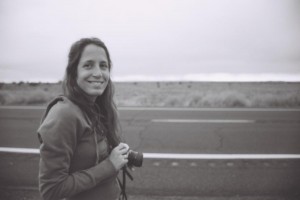The 2015 Media That Matters conference is right around the corner, so we decided to let our #MTMDC panelists to introduce themselves and explain in their own words how they engage with media that matters.
2015 Media That Matters conference is right around the corner, so we decided to let our #MTMDC panelists to introduce themselves and explain in their own words how they engage with media that matters.
Filmmaker Lusia Dantas heads the ‘Land of Oppertunity’ Project for the past nine years. She will participate in the ‘Impact Design: From Production to Measurement’ panel.
For the past nine years, I have been at the helm of the Land of Opportunity transmedia documentary project. Rooted in post-Katrina New Orleans, Land of Opportunity is an ongoing exploration of the often contentious process of community redevelopment in the face of crisis and disaster.
Land of Opportunity began with a mission: to document a wide spectrum of stories about post-Katrina New Orleans that reflected the larger issues and tensions shaping urban America today. It was our goal early on to disseminate these stories in multiple ways to a diverse audience. Over seven years, we collected hundreds of hours of footage and amassed an unprecedented archive of film shot in and around New Orleans.
We produced a feature film, which was broadcast by Arte France in Europe and released in 2011. The film received key support from several organizations including Ford Foundation, Rockefeller Foundation and Chicken and Egg Pictures. In tandem with the film, we produced several online videos to support campaigns by partners in a growing, cross-sector movement for equitable redevelopment in crisis-hit communities across the United States.
As new technology became available, we began building our experimental interactive platform, which combines New Orleans-based footage with multimedia content created and curated by partners in sister cities and communities. Through perspectives that travel across media, including new experimental interactive web platform, the project explores the fundamental question: What kinds of communities do we want to (re)build in the 21st century? The platform was built with generous support from the Ford Foundation and received technical support from the Mozilla Foundation. And in 2014 LandofOpportunity was a Webby Award Honoree for Best Community Website.
The innovation, technology, and presentation of LandofOpportunity is at the cutting edge of transmedia social issue content production and distribution. Mediamakers, journalists, educators and advocates use the platform’s opensource technology to construct layered multimedia narratives that foster a multifaceted critical exploration of complex problems from diverse perspectives. Groups and individuals can collaborate with partners working in different communities, thus creating a foundation for communication and knowledge-sharing across places, issues, and sectors. For example, a segment on youth rallying for jobs in Bostonincorporates a video of their peers in New Orleans protesting a dangerous landfill. A multimedia piece profiling fishermen impacted by the BP Oil Disaster yields a series of interviews with local social service workers and health experts. An interactive video highlighting the gentrification of Downtown Brooklyn is layered with scholarly research on the commodification of urban culture and its relationship to tourism and redevelopment.
Today, after several years of working on social justice documentary projects, I’m returning to screenwriting and fiction film. I’m currently adapting Desire Street, a non-fiction book set in New Orleans, into a screenplay. I’m also continuing to grow the LandofOpportunity platform with new content partners like the Anti-Eviction Mapping Project, a data-visualization, data analysis, and digital storytelling collective documenting the dispossession of San Francisco Bay Area residents. They are using the platform to create an original interactive piece that takes a hard look at how the housing crisis and extreme gentrification are displacing the elders and working-class communities of color that formed the cultural backbone of the city.
I believe media harnesses our natural affinity to understand and relate to the world through storytelling . Narratives (both linear and nonlinear) personalize and contextualize the important issues – and subsequently catalyze individual and collective action.
My hope is to examine some of the ways in which we, as media-makers, can harness cutting-edge technology in order to create innovative and capacious storytelling environments, ones that transcend the limits and extend the impact of traditional linear film narratives. I hope also to engage in dialogue around how “transmedia” storytelling is facilitating the intersection of advocacy, scholarship and mediamaking. I also want to learn from other mediamakers about relevant ideas, challenges, and best practices in emerging media as it pertains to social justice storytelling and impact.
Meet Luisa and other innovative media makers at the Media That Matters conference February 19-20. If you haven’t signed up yet, visit the registration page.
